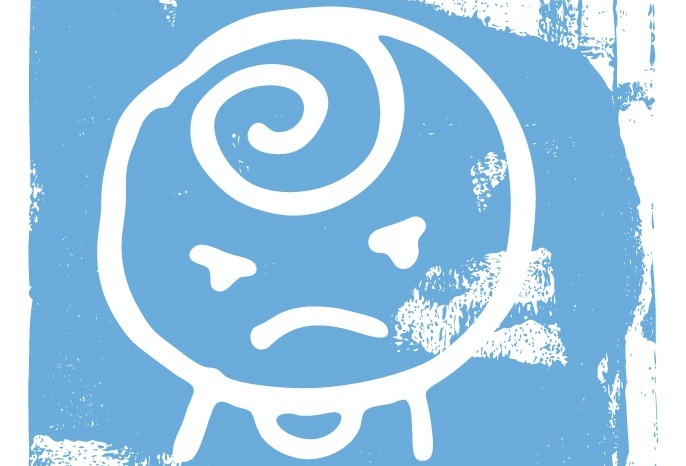Sometime between 4 months and 2 years of age your baby will get 20 new teeth. So if the eruption of each new tooth causes you 3-5 sleepless nights, then you can expect to have about 100 bad nights due to teething.
Wahoo!
Actually compared to other baby sleep stumbling blocks, teething is relatively benign because:
[list type=”checklist”]
- Not all teeth will cause problems (some you won’t even notice until they’re already in).
- Some teeth will come in simultaneously.
- Unlike sleep regressions, you can actually do something about teething.
[/list]
Teething rarely causes any serious problems. There are plenty of resources on how to care for your teething baby and everybody generally figures out which trick of the trade (frozen wash cloth, rubber nubby, gel-filled teether) works best for their baby. Anything you and your baby choose is probably great if it works for you and it doesn’t contain benzocaine (no Anbesol or Orajel even if the label says OK for babies).
But here’s thing about teething and sleeping, none of your frozen bagels or colorful rubber rings work when your baby is asleep.
Help Teething Babies Sleep
I get lots of questions about teething babies. And to these questions I have only one answer.
PAIN RELIEVER.
Tylenol or Motrin are your not-so-secret sleep aids. Why? Because they’re the only things that will sooth sore gums while your baby sleeps.
Depending on which medicine you prefer your average baby dose will cover anywhere from 4-8 hours of teething pain. Which means if your baby sleeps 10-12 hours a night one dose won’t get them through the night.
Giving Medicine at Night
You want to give your baby their first night dose at the most logical time based on the doseage of whatever (Tylenol, Motrin, et al) you are working with. For example if your pain reliever works on a 6-hour dose and your baby wakes to nurse at midnight then you’ll want to give them their medicine at 6:00 PM so that you can give them a second dose during the midnight feeding. This would presumably cover them until 6:00 AM which should be close enough to their normal wakeup to work.
 If your baby doesn’t wake up for feedings at night (YAY for you!) but IS waking up because of teething discomfort then they still need a night dose of pain reliever. You can wait until they wake up unhappy however I don’t recommend you do so. Why? Because now you have a fully awake and unhappy baby who will need to wait for ~30 minutes for their pain reliever to kick in.
If your baby doesn’t wake up for feedings at night (YAY for you!) but IS waking up because of teething discomfort then they still need a night dose of pain reliever. You can wait until they wake up unhappy however I don’t recommend you do so. Why? Because now you have a fully awake and unhappy baby who will need to wait for ~30 minutes for their pain reliever to kick in.
Ideally you would give them their second dose BEFORE they wake up. Let’s say you gave them a 6-hour dose at 6:00 PM. And they are generally waking up unhappy at 2:00 AM. I would recommend giving them a proactive dose at midnight (which is when they are “due” for more anyway) while they are still largely asleep.
While your baby is still asleep gently put a syringe or bottle dropper of pain reliever into the back corner of their mouth. Very gradually put the medicine in their mouth (not too fast, they’re asleep after all!). Most babies will just quietly swallow the medicine without waking up. Play around with a technique that works for you but preemptive medicine can really soothe over rough teething spells. For even the most painful tooth eruptions you’ll probably only have to do this for 2-3 nights.
When Nothing Works
If no amount of Tylenol and frozen teethers are helping your baby talk to your pediatrician about temporarily increasing the dosage. Generally the dosage for infant pain relievers is very conservative (read: low) and it might be time to give it a little boost.
Anybody else have any teething tips to share?
